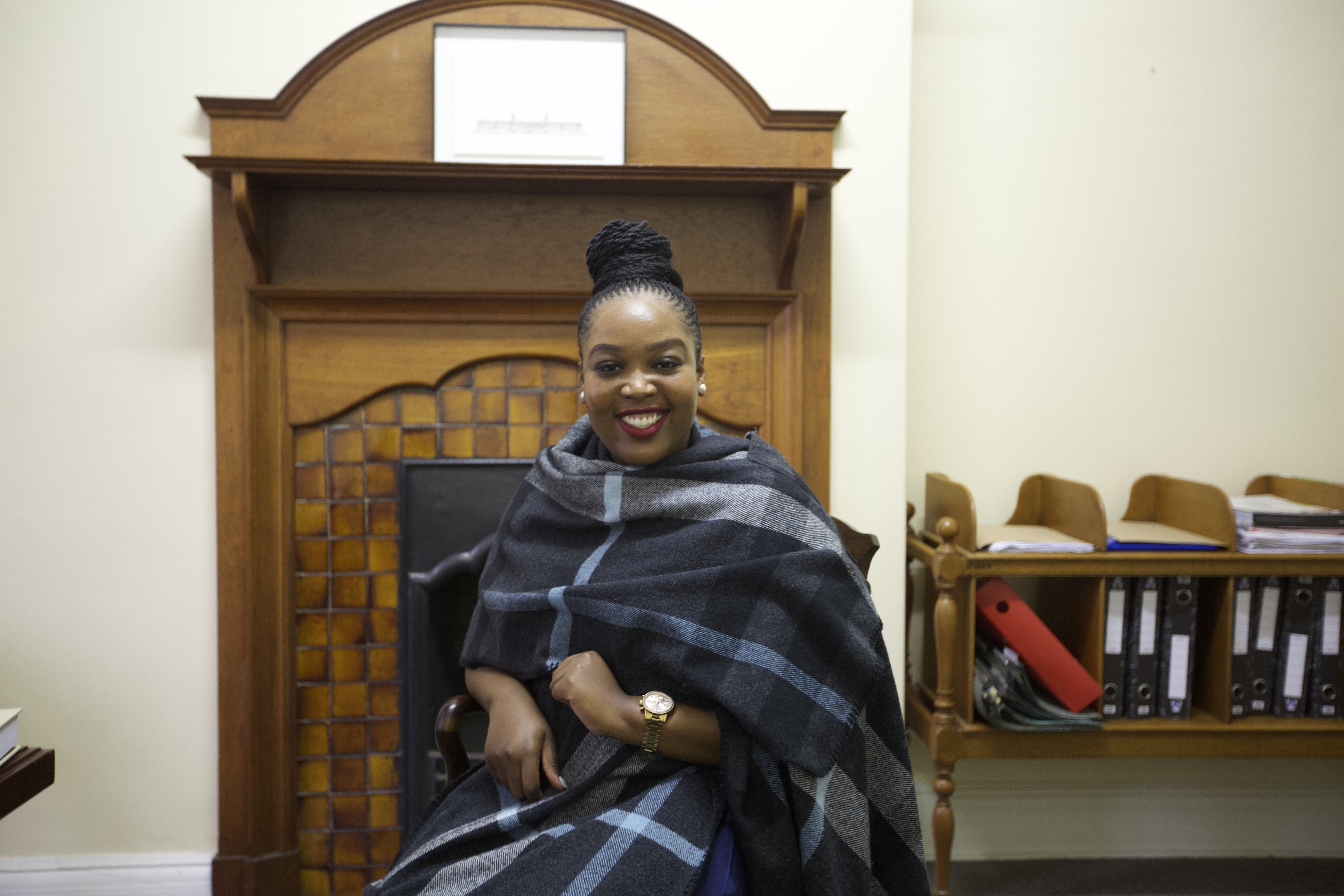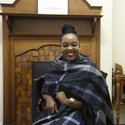Women's Month
“I would choose politics again”

Karabo Khakhau, member of Parliament and the spokesperson of the Democratic Alliance
© Friedrich Naumann Foundation for FreedomSince a young age, Karabo Khakhau has always been a voice for those who cannot speak up for themselves. Today, she is a member of Parliament and the spokesperson of the Democratic Alliance (DA). Being a woman in the political arena is no easy job, but if she could choose again, she would still choose politics.
Khakhau’s journey in politics began during her university days at the University of Cape Town under the Democratic Alliance Students Organization (DASO). However, she says her mother always reminds her that she has been an activist since childhood.
“Unofficially, my mother and my kindergarten teacher say my journey in politics started when I was a kid in kindergarten. One report card once came back saying, ‘Karabo does not do anything unless she has a clear understanding of why it is happening.’ Very defiant, always speaking on behalf of other kids who she feels are not being treated correctly. Always trying to be a friend.”
It was during her days at UCT that she became increasingly interested in politics. At that time, in 2015 and 2016, universities saw large numbers of protest actions, with students calling for the fall of fees and the decolonisation of South African universities. While certain aspects of the Fees Must Fall Movement made sense to Khakhau, she strongly opposed calls for free education for all and the shutdown of campuses.
“You cannot put a domestic worker's child on the same funding criteria as a rich man’s grandchild. On that basis, I could not agree with free education for all. The second problem was the shutting down of the institutions themselves, which was very problematic. You can’t fight for access to education while your method restricts that access.”
From Student Politics to the Youngest MPL
Following her journey in student politics, Khakhau became the youngest member of the provincial legislature in the Free State Province in 2019. Then, in November 2022, she was called to South Africa’s National Assembly to serve as a Member of Parliament. Upon reflection, she still can’t believe how far she has come.
“I looked back the other day and thought, ‘That is crazy.’ It feels like it's been a lifetime, right? Because we've been dealing with so many student issues. But the fact that I’m now also playing a critical role, championing communication for the party, crystallising it, and making sure that as many people as possible can relate to and hear what we have to offer, is amazing.”
The Voice of the DA
As the party spokesperson, Khakhau plays a crucial role in sharing the DA’s message. However, she acknowledges that the party now faces the challenge of distinguishing itself, especially since it is in a coalition with the African National Congress (ANC) and others.
“Politicians always make the mistake of assuming that ordinary South Africans know what is happening in politics every day. I want to make communication easy and engaging so everyone can understand our message.”
She also wants South Africans to relate to the DA. “That’s what I want to achieve. This means expanding our reach as a political party, making sure that as many people as possible can not only understand us but also see us and relate to us.”
The need for women in politics is significant because we don’t have enough of them. So, there’s always room for more inclusion and a demand for better female participation in politics, which has been great for me.

On Parliamentary Affairs
Khakhau has served as a Member of Parliament for a few years now but says she would like to be the Speaker of Parliament in the future to ensure it serves its real purpose. “If I were to choose my dream job when I retire, it would be Speaker of Parliament. And not because of the glory that comes with just standing next to the President at the beginning of every State of the Nation Address, but because this institution is a critical machine that is supposed to bridge the gap between the executive and the people. I want to make Parliament more people centred. That’s very important.”
On Being a Woman in Politics
Being in politics is hard, but being a woman in politics is even harder, says Khakhau. “It’s harder to be a woman in politics. Me not being a man automatically puts me at a disadvantage compared to those who are.”
“Your femininity as a woman is often misconstrued as weakness. Your ability to care, show compassion, and have a tone consistent with motherhood is often seen as not strong enough, not robust enough, not tough enough for what politicians need to survive in politics.”
Khakhau also notes that the biological factors of being a woman add to the challenges. “Something as simple as period pains and not always having the right kind of medication. Not because I can’t afford it, but because when you are diagnosed with various conditions, not every pill can just be taken to solve the problem. So, all of these things make it difficult.”
Khakhau believes there are too few women in politics and that more must be done to include women in the arena.
“The need for women in politics is significant because we don’t have enough of them. So, there’s always room for more inclusion and a demand for better female participation in politics, which has been great for me. But you would know, even when the government talks about the challenges of poverty, inequality, and unemployment, the group within the population that is mostly affected by these issues is young black women.”
Despite the challenges of being a woman in politics, Khakhau says she would choose politics all over again. “I love it. I always say if I were to choose a profession, which is weird because politics isn’t really a profession, it’s a service. But because you earn a salary for it, it is a profession, it’s a career, and I’d choose politics again. It’s so much fun to speak in rooms where others can’t, on behalf of people.”
“I like the fact that I can tell the President, ‘Sir, you are wrong,’ and have a voice for others. Speaking truth to power, holding the most feared man in the land accountable—I love doing this.”
